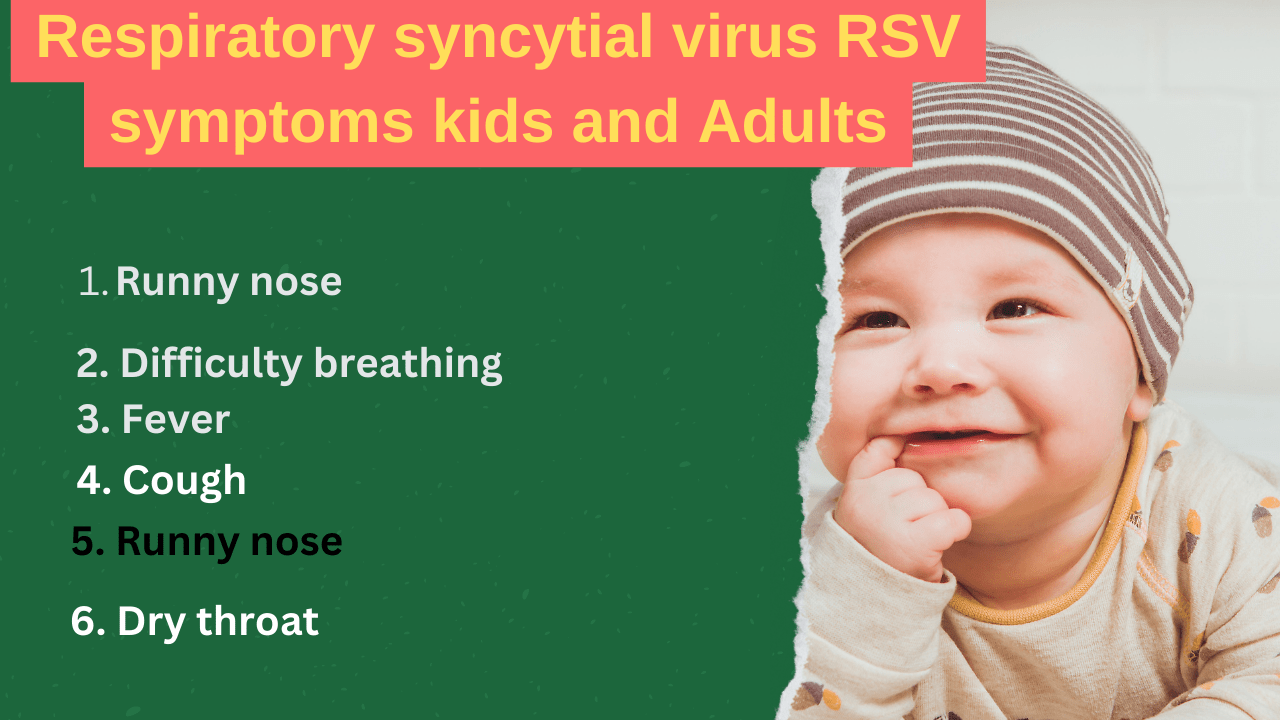Respiratory syncytial virus or RSV is a common respiratory virus that can cause symptoms ranging from mild to severe. It is a leading cause of respiratory infections in young children and can also affect adults, particularly older adults and people with weakened immunity.
RSV is highly contagious and spreads easily through respiratory secretions, such as saliva, mucus, or nasal secretions. It can also be spread through contact with contaminated objects, such as toys or doorknobs. Symptoms of RSV include fever, runny nose, cough, and difficulty breathing.
In severe cases, it can lead to pneumonia or bronchiolitis. There is no specific treatment for RSV, and most people recover on their own within a few weeks. However, severe cases may require hospitalization. There are vaccines available to prevent RSV in high-risk individuals, such as premature infants and people with underlying medical conditions.
What are the 10 most common symptoms of Respiratory syncytial virus RSV in adults?
Symptoms of respiratory syncytial virus in adults can range from mild to severe. Common symptoms are.
- Fever
- Cough
- Runny Nose
- Difficulty in breathing
- Bodyach
- Sore throat
- Dry throat
- Headache
- Fatigue
- Decrease in appetite
In severe cases, RSV can cause pneumonia or bronchitis, which can lead to difficulty breathing, chest pain, and coughing up mucus. If you are experiencing severe symptoms or are having difficulty breathing, it is important to seek medical attention.
NOTE: RSV is more dangerous for older adults and people with underlying medical conditions, such as asthma or heart disease.
What are the 10 most common RSV symptoms in kids?
RSV can lead to pneumonia or bronchiolitis, which can be serious, especially in young children and babies. Here are the 10 most common RSV symptoms in kids.
- Fever
- Cough
- Runny Nose
- Difficulty in breathing
- Bodyach
- Sore throat
- Dry throat
